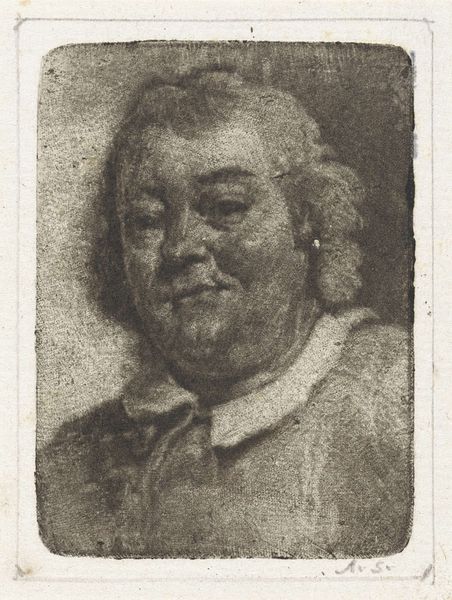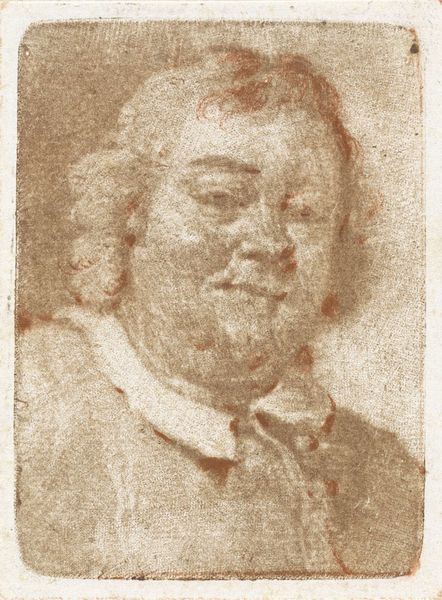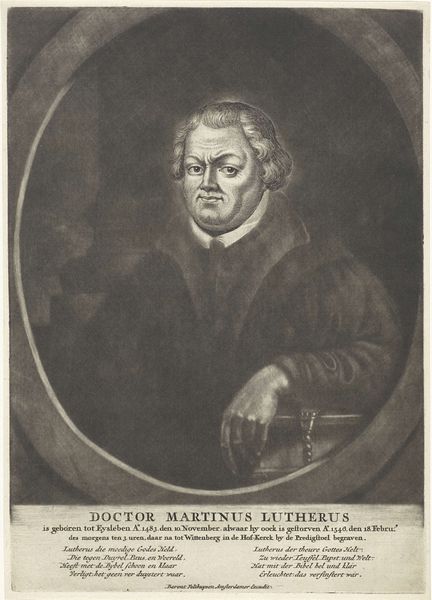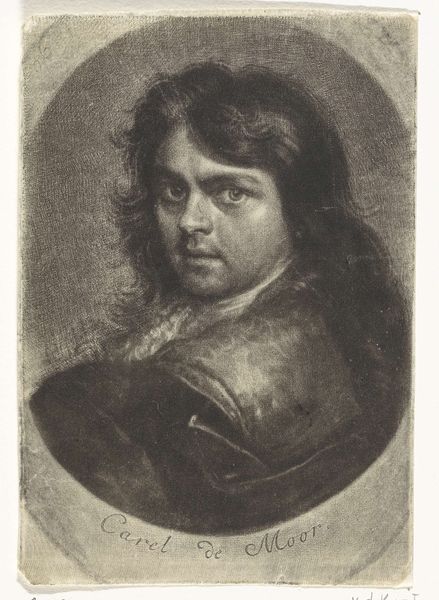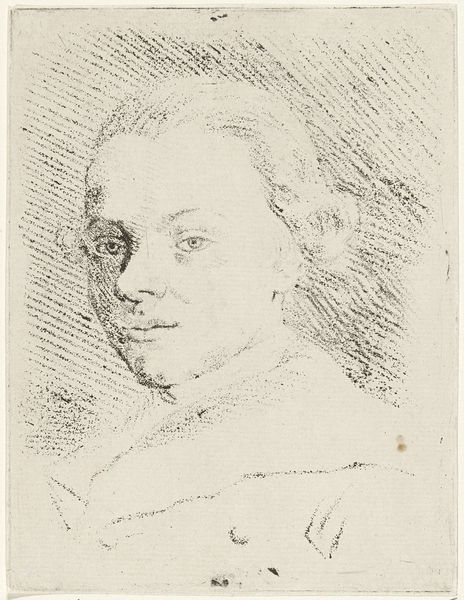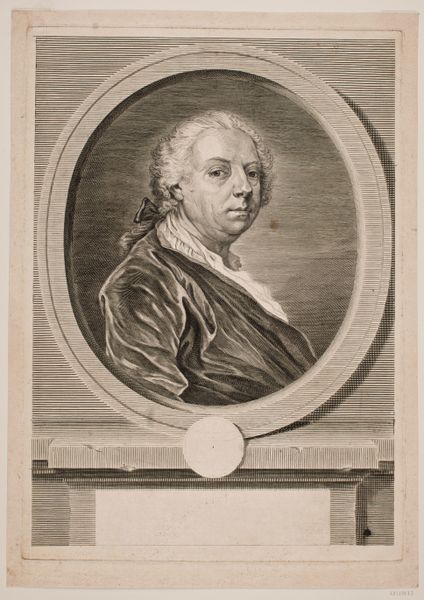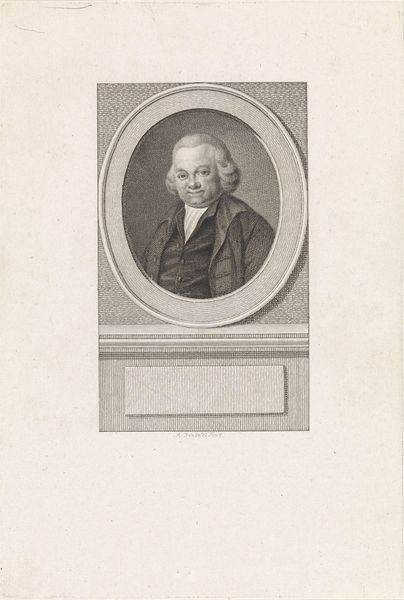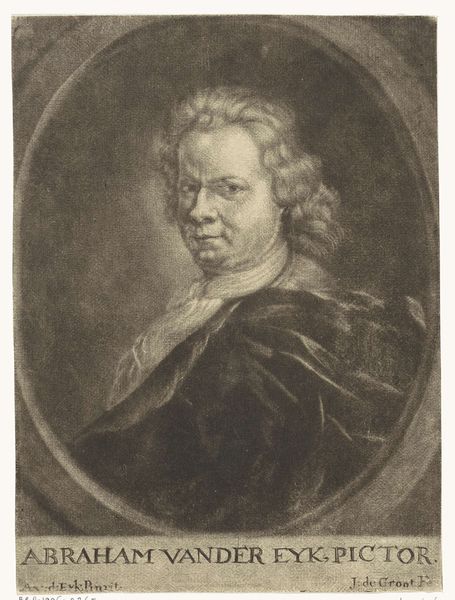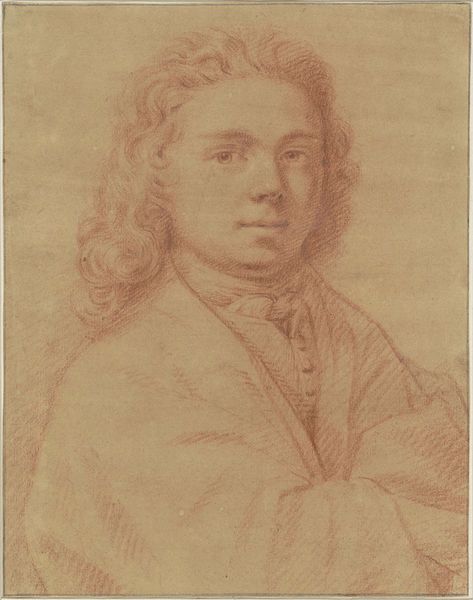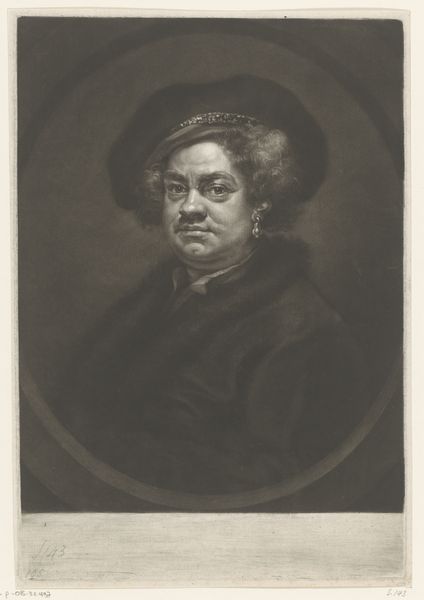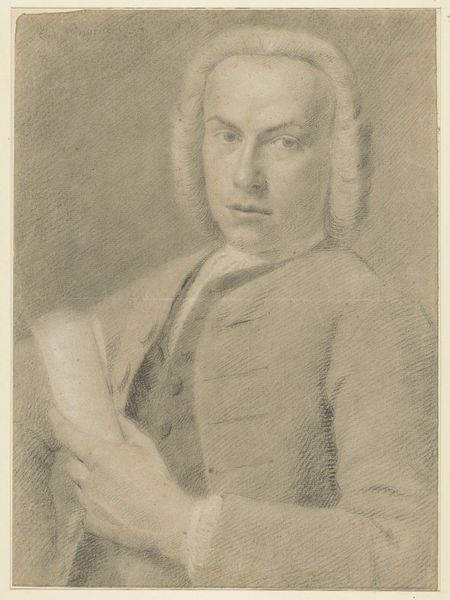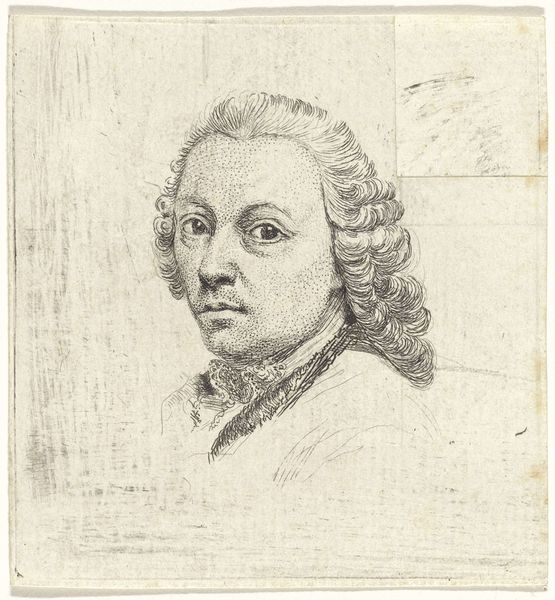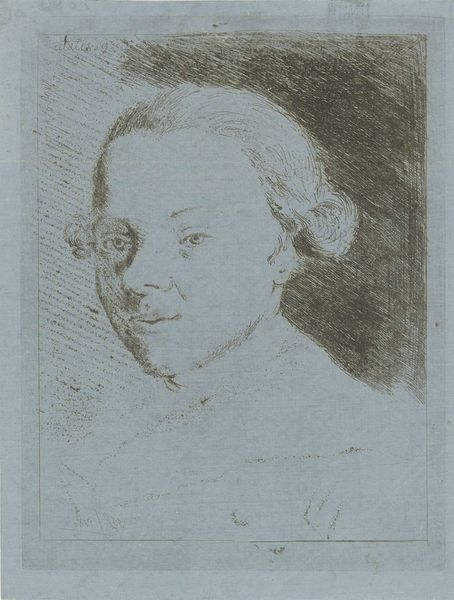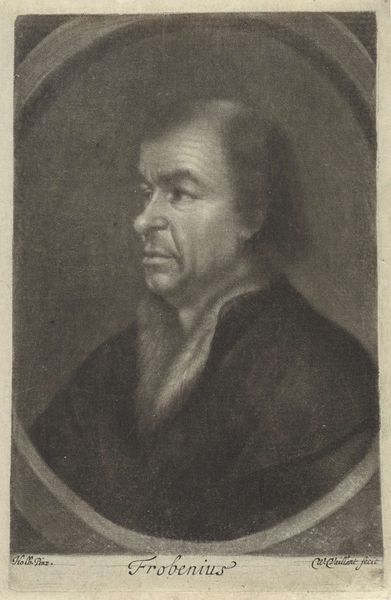
drawing, charcoal
#
portrait
#
drawing
#
baroque
#
charcoal drawing
#
pencil drawing
#
portrait drawing
#
charcoal
Dimensions: height 73 mm, width 53 mm
Copyright: Rijks Museum: Open Domain
Curator: Oh, this portrait just vibrates with presence. Aert Schouman created "Buste van een man," sometime between 1720 and 1792. What do you make of him? Editor: I see a real emphasis on craft here. The charcoal lends a smoky texture, like rough cloth. Did Schouman use chalk and pencil too? How would that have impacted the economics and process? Curator: I imagine the artist reaching into some vulnerable space when trying to reflect the sitter. The portrait is softly modeled, more implied than strictly defined. A shadowy Baroque ghost! I imagine the feel of charcoal under my own hand… Editor: It's true—this emphasis on portraiture, often highlighting wealthy male subjects, solidified a certain market for art as commodity and cultural capital. Was Schouman reliant on such figures for income, or was the portrait-making activity tied into workshops for artisan craftspersons? Curator: I agree. Yet, looking at his mouth and squinting eyes, he might even possess some internal skepticism! Or even wit? I find a playful depth there, an invitation... Editor: The means of production are especially intriguing considering Schouman's attention to fine detail juxtaposed against the limitations imposed by a charcoal or graphite medium. How can we reconsider this period through the lens of available raw materials for artistic exploration? Curator: The textures alone capture my senses. I picture the paper's gentle tooth resisting his tools, making him work just to hint at the textures. Editor: Yes, thinking of those subtle grades in tonality is interesting, especially from a purely material standpoint. Curator: He's intriguing; Schouman’s "Buste van een man" offers a space of open thought for our current age to meet with that era. Editor: It also really grounds Baroque portraiture with such visible craft in plain sight, beyond those silky, glossy surfaces that we tend to automatically connect to the styles and subject matter of that age.
Comments
No comments
Be the first to comment and join the conversation on the ultimate creative platform.
